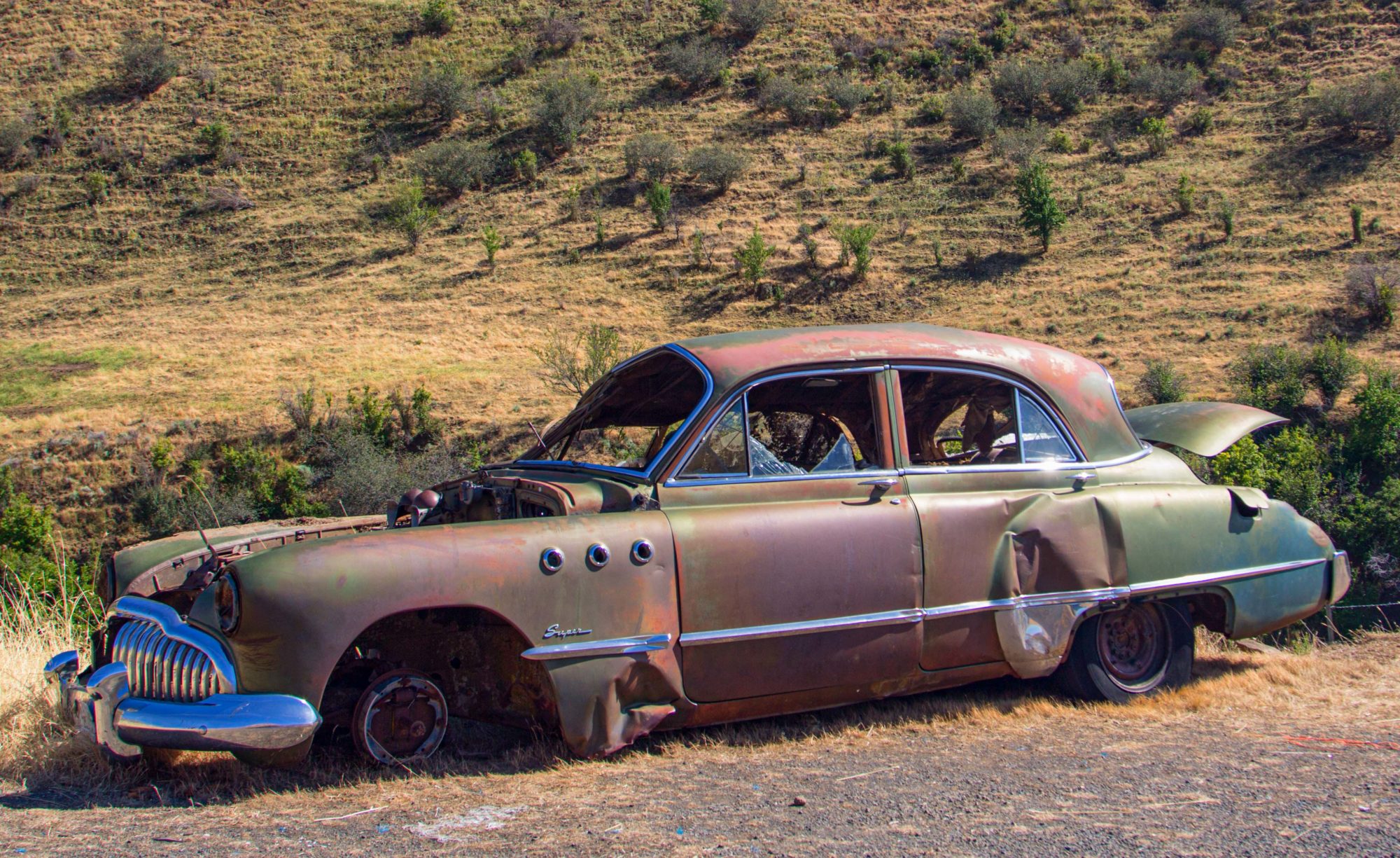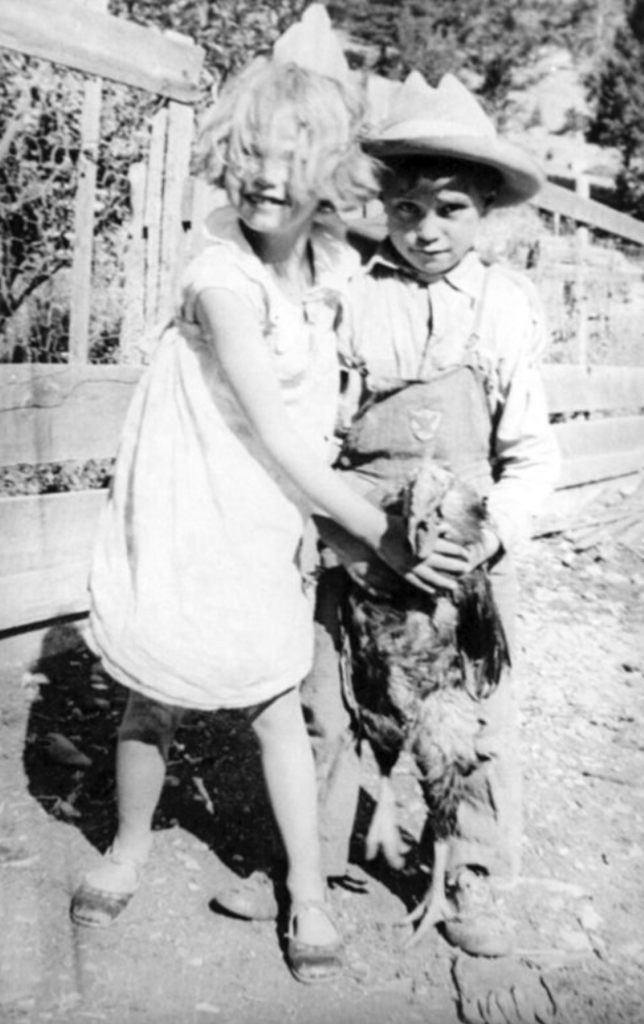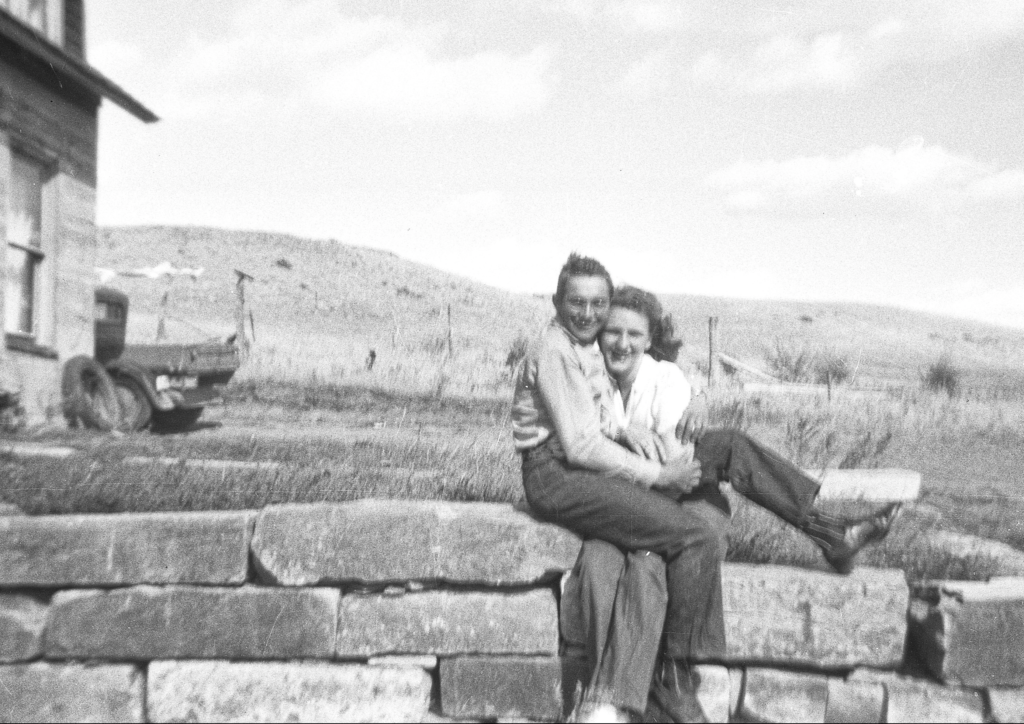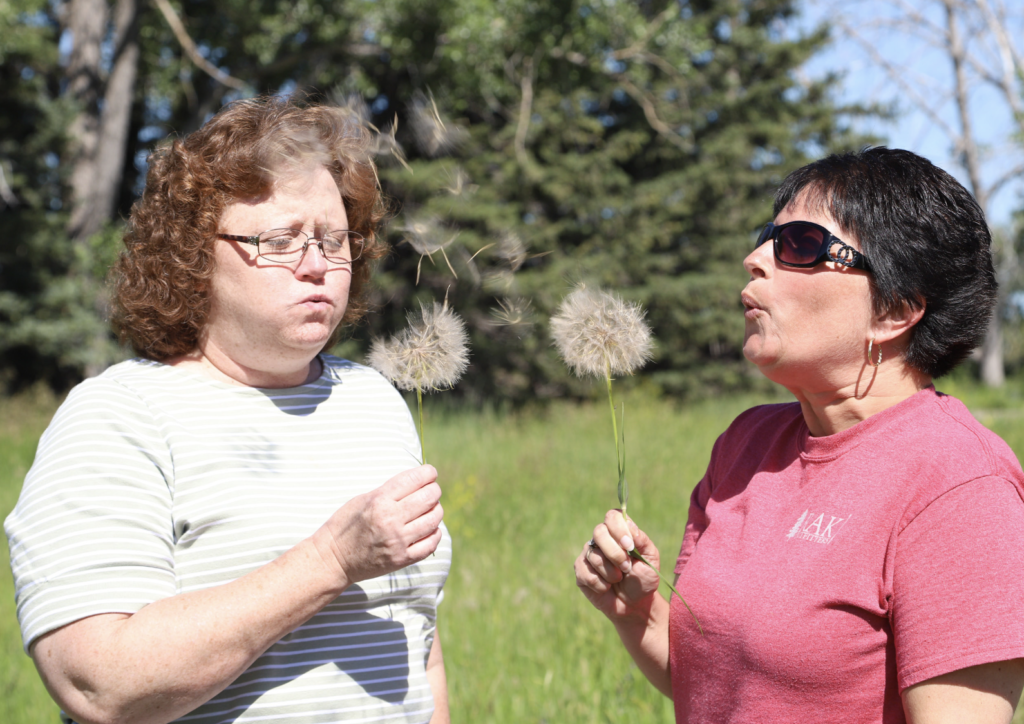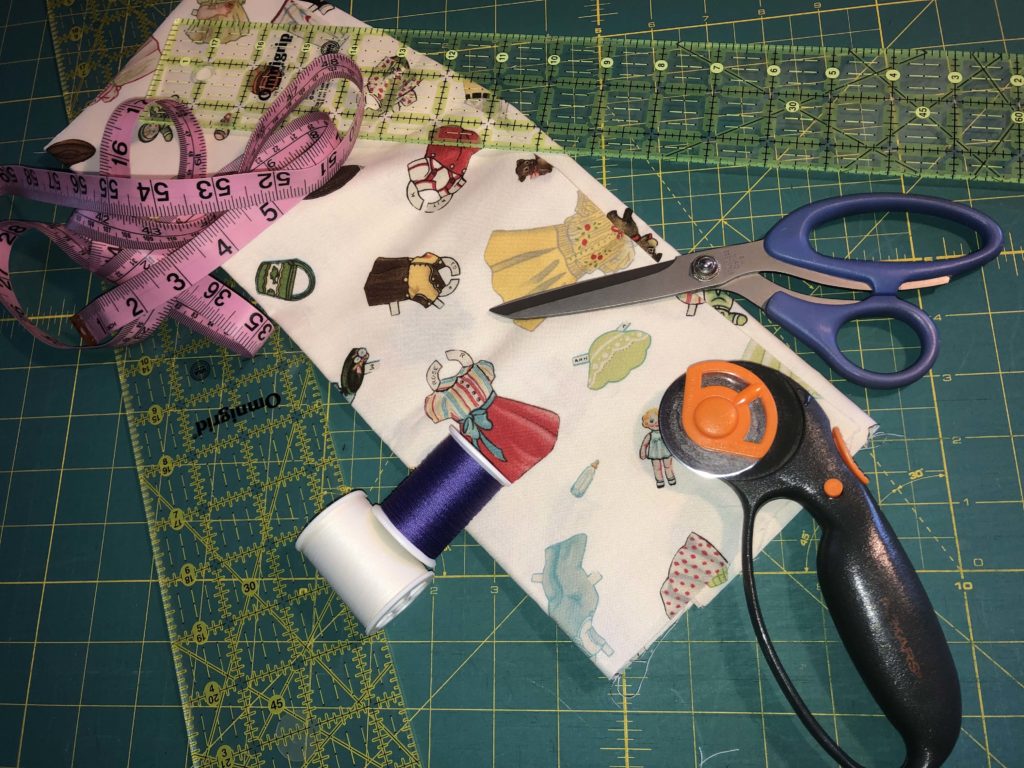by my guest author, my dad, with a story from the mountains
Sister Ellen was born on the Fourth of July. This gave her an identity with American History. In her imagination she took part in such things as the Battle of Bunker Hill and the Boston Tea Party. Oft times she said, “Let’s play the Revolutionary War.” Being born on the Fourth of July also gave Sister an heritage of independence and revolution. Like the signers of the Declaration of Independence, she fought against the British, and a British person lived at our house.
The Britisher was Grandfather Ward. He carried a lot of fire in his youth, but they let him stay in Great Britain until he was nearly sixty years old. When he was retired, but not burned out, he came to the States to reclaim them for the British Empire. He didn’t make a success of this which made him touchy. This touched off Sister Ellen.
Grandfather and Ellen had a communication problem. My seven-year-old sister didn’t know that “heather” was a bush. When Grandfather said, “Sookie, do you see the birds flitting in the heather?” Sister stared at him with her mouth open. Other words caused similar problems. She thought that “fetch” was a dog’s name. When Grandfather said, “Sookie, fetch me that magazine,” she looked at him and growled. If they were on a collision course through the house, he declared right of way. “Mind the way, Sookie, mind the way.” ometimes he looked at her like she was jolly well daft and said, “Mind what you’re doing, Sookie. Mind what you’re doing.” Sookie found it difficult to mind her mother, let alone to mind her way or mind her chores.
Grandfather had been a prize fighter back in the days when the art was called fisticuffs and the fighters used bare fists and poised for Currier and Ives pictures. Grandfather used to soak his hands in salt brine to make them tough for the art of fisticuffs. In his younger days boxing matches lasted many rounds and a round didn’t end until it had a knockdown. There was none of this nonsense of ringing a bell before someone was hearing bells. Grandfather wanted to bare‑fist‑box even though he had reformed and moved to the States. And then he fell down and broke his leg. Now he was laid up in the bedroom under the attic.
One afternoon, before Mother left for the garden to pick peas, she gave some last minute instructions. “Robert,” she told me, “I expect you to mind your sister.” Then she turned to my sister. “Ellen,” she said, “don’t wake Barbara from her nap, and don’t you children bother your grandfather.” “Oh, we won’t,” Ellen promised. This meant that she wouldn’t bother Barbara because our younger sister acted like a cat with his tail caught in the door when she first woke up. Furthermore, Ellen would be cautious about Grandfather. However, she had a Fourth of July Spirit that kept her looking for British soldiers to battle.
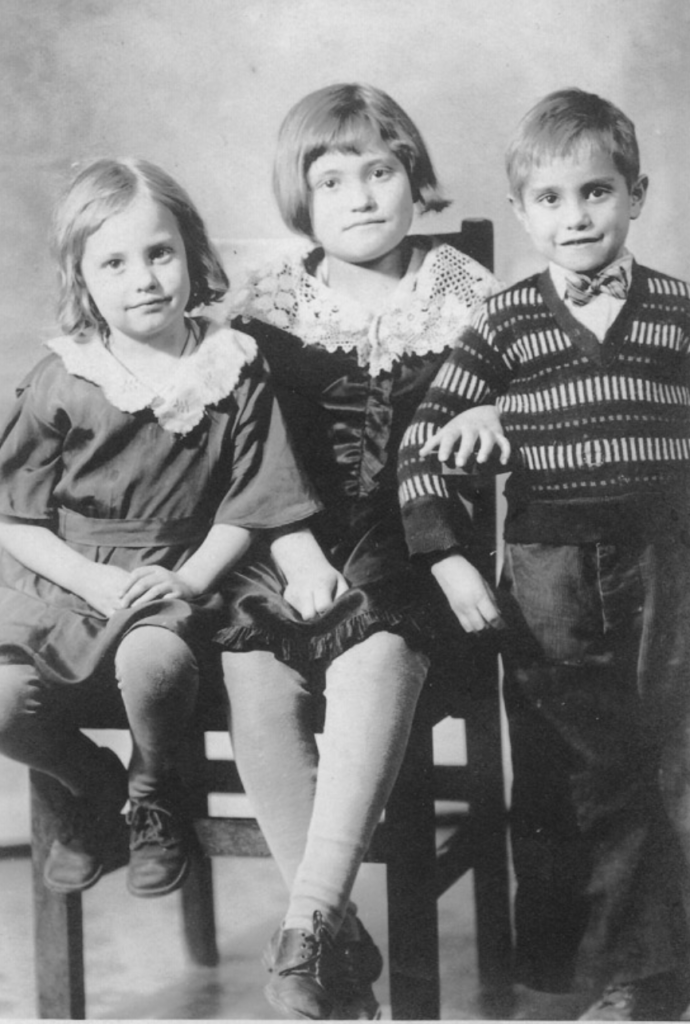
The attic was strategically located above Grandfather’s bedroom. The attic floor had large cracks in it. The largest ones were over the bed. There was a huge knothole in the floor straight above Grandfather’s snoring nose. The elder Ward complained. He complained because we ate hot bread (biscuits). He griped about children knocking dirt down through cracks in the ceiling over his bed ‑ especially when he was laid up with a broken leg. He complained that he didn’t get the respect an elder was due ‑ although he had a box of apples beside the bed because someone wanted him to recover.
When Mother was in the house we couldn’t play in the attic. She didn’t want us to knock dust down on Grandfather. Mother didn’t like to hear Grandfather scold. But now she was outside and Sister said, “Let’s go play like the attic is Bunker Hill.”
“We better not,” I suggested. “We’ll knock dust on Grandfather.” “He’s asleep,” Ellen replied. “We’ll get caught.” “Mother is down in the garden picking peas and changing the water. And besides, Mama said you were supposed to mind me. Now climb the ladder into the attic.”
We walked across the attic floor. Suddenly a voice growled from the lower regions. “Hey, you tots, what are you doing up there?” “Nothing,” came Ellen’s sweet reply. “Nothing,” I added. “Just playing.” “Your mother wont let you do that. You’re knocking trash down on my covers.” “Let’s have a parade,” Sister suggested. We paraded. “I say, you tykes, quit that bloody tramping.” “We’re marching.” “I’ll pitch you down the stairs. Do you want me to throw you down?” Sister Ellen whispered. “He can’t get up here. He has a broken leg.” “Watch me jump,” I said.
Then we saw the knothole. We peeked through the knothole. A Britisher eyed the little eyes peering from the ceiling. Ellen remembered what the New Englanders did at Bunker Hill. She scooped up a handful of torn paper bits and dust and handed it to me. “Don’t fire until you see the whites of his eyes,” she said. I saw the whites of his eyes.
The Britisher’s eyes closed. He blew puffs of paper off the end of his nose. “Hey, you scamps!” he threatened, “I’ll tell your mother, and she’ll bloody well smack your bottoms.” He sounded serious and his face was red ‑ a serious color with Grandfather. Ellen looked at me. Would a Britisher tell on someone who was born on the Fourth of July? I nodded my head. I thought he would tell. I looked at Ellen. Would our mother make an appropriate response? “That’s the kind of woman she is,” Sister sighed.
With an ally like that, a Britisher would surely win the Second Battle of Bunker Hill. We crawled out of the attic and made a peace treaty. When Mother came home we were playing on the front porch. Grandfather was laying in bed with a smile on his face. He had fought another round and won the bout.
